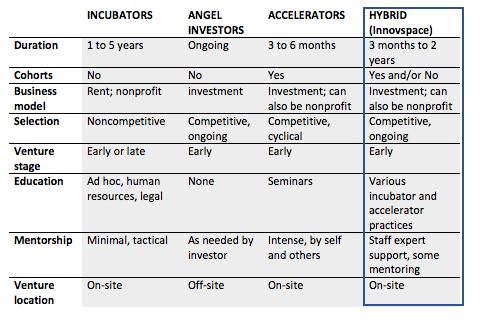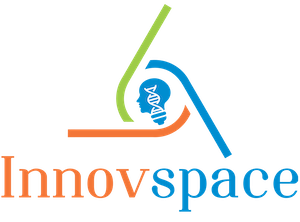Incubators vs. Accelerators Vs Pre-Accelerators – A Comparative Review

For early stage startups, accelerators and incubators offer great ways to grow their businesses. The Accelerators are commonly mistaken with other institutions supporting early-stage startups, such as incubators, angel investors, and early-stage venture capitalists (1). So, who are Incubators then? Incubators “incubate” innovative ideas with the hope of deriving out a business model and the company, eventually. Accelerators are fixed-term, cohort-based, intensive and mentorship-driven, and they climax in a graduation popularly known as “demo day.” None of the other early-stage institutions; incubators, angel investors, or seed-stage venture capitalists — have all these elements. However, Accelerators may share with the above; the goal of cultivating early-stage startups, but they are different, with separate business models and incentive structures.
Startups enter accelerators for a fixed-term, as part of a cohort. As per HBR.org “The accelerator experience is a process of intense, rapid, and immersive education aimed at accelerating the life cycle of young innovative companies, compressing years’ worth of learning-by-doing into just a few months”. Accelerators focus is on small team, not on only the founder. They consider that single person is insufficient to handle all the work associated with a startup. In an accelerator program, the startups must “graduate” by a given deadline, typically after three months. During this time, they receive intensive exercise supported by mentoring and training, and they are expected to perform rapidly. Virtually, all accelerators end their programs, where the startups present to investors for funding.
With the Accelerators, the primary value to the entrepreneur is achieved from the mentoring, networks, and the recognition of being chosen to be a part of the accelerator. The process that startups go through in the accelerator can be separated into various phases: awareness, application, program, demo day, and post demo day. The business model of Accelerators is based on generating venture style returns, not rent, or fees for services. Then comes the Pre-Accelerators such as Innovspace, a Business Accelerator in Coimbatore, a hybrid model of accelerator and incubator. The Pre-Accelerators do share the characteristics of both the Incubator and the Accelerator, typical duration of 3 months to 2 years for graduation. The below table compares the four types of institutions. Accelerators do not necessarily need to include a private or coworking space, but many do as we do at Innovspace.
Irrespective of the institution, some very basic needs for entrepreneurs and their teams were met by the coworking spaces when they first came on the scene. They provided an efficient and cost-saving option for those who could not afford to independently lease or purchase office space under typically long term contracts. These hive-like spaces were often bare bones and humble, but they did the job. They helped startups move out of garages and basements into real office spaces.
Like Innovspace, accelerators with coworking spaces provide professional corporate setup as compared to the bare bone hive-like spaces for their accelerated teams and other individual startups or freelancers with all the facilities and community benefits of the entrepreneurial ecosystem. For startups these things are very exciting.
At Innovspace, memberships can range from a small office space, either for individual or a team to virtual offices. The point of coworking spaces is to offer something more. These spaces ideally, are designed to foster communities. When done well, they are places that people want to work at, because of the amenities provided that are supportive and create a vibrant and social space. This means that as startups grow, their chosen coworking spaces can grow with them.
By choosing such community conscious coworking spaces, startups avail themselves of the benefits of Professional brand identity, great office infrastructure, amazing locations, growth potential, and the opportunity to network with other like-minded entrepreneurs. These cost-effective options will only continue to become more popular in the future.
To summarise, accelerators can have a significant positive effect on the performance of the startups they work with, compared with other comparative early-stage startups. By and large, accelerators are a positive addition to startup ecosystems across the country and the world. It’s a man-made perfect storm of mentorship, access to technology, office space and an innovative community, packed into a short time frame. Essentially, the function of an accelerator is to turn the art of starting a company into a program that can be repeated, frothing out valuable companies as if on an assembly line.

